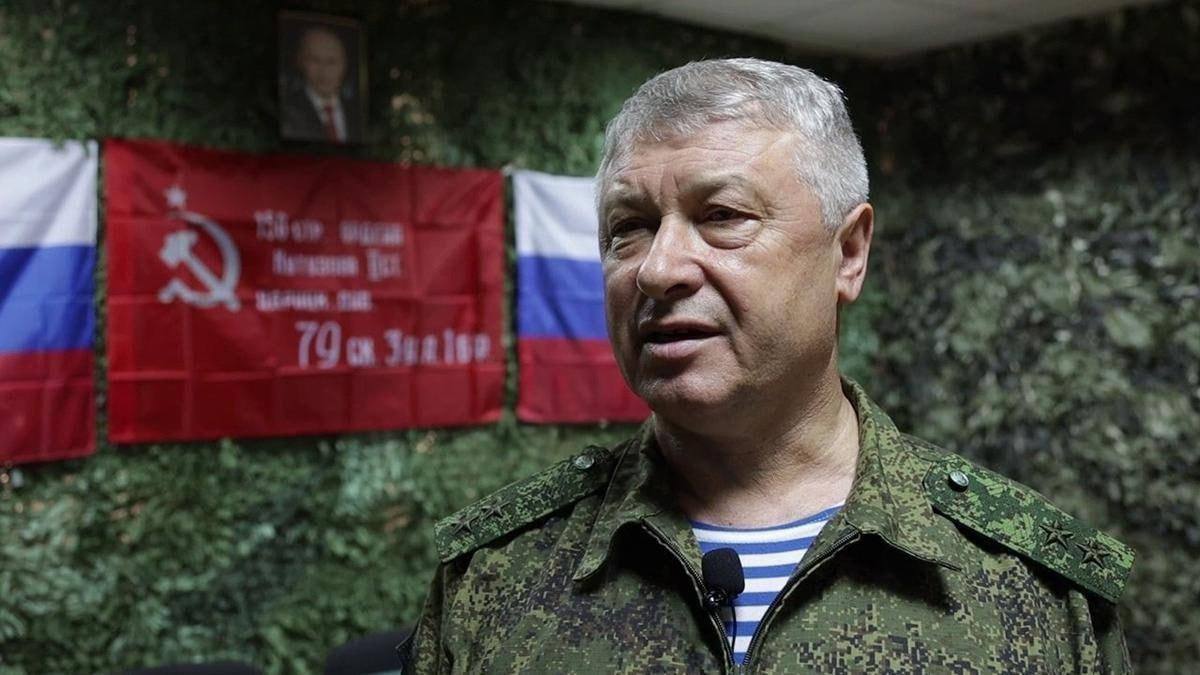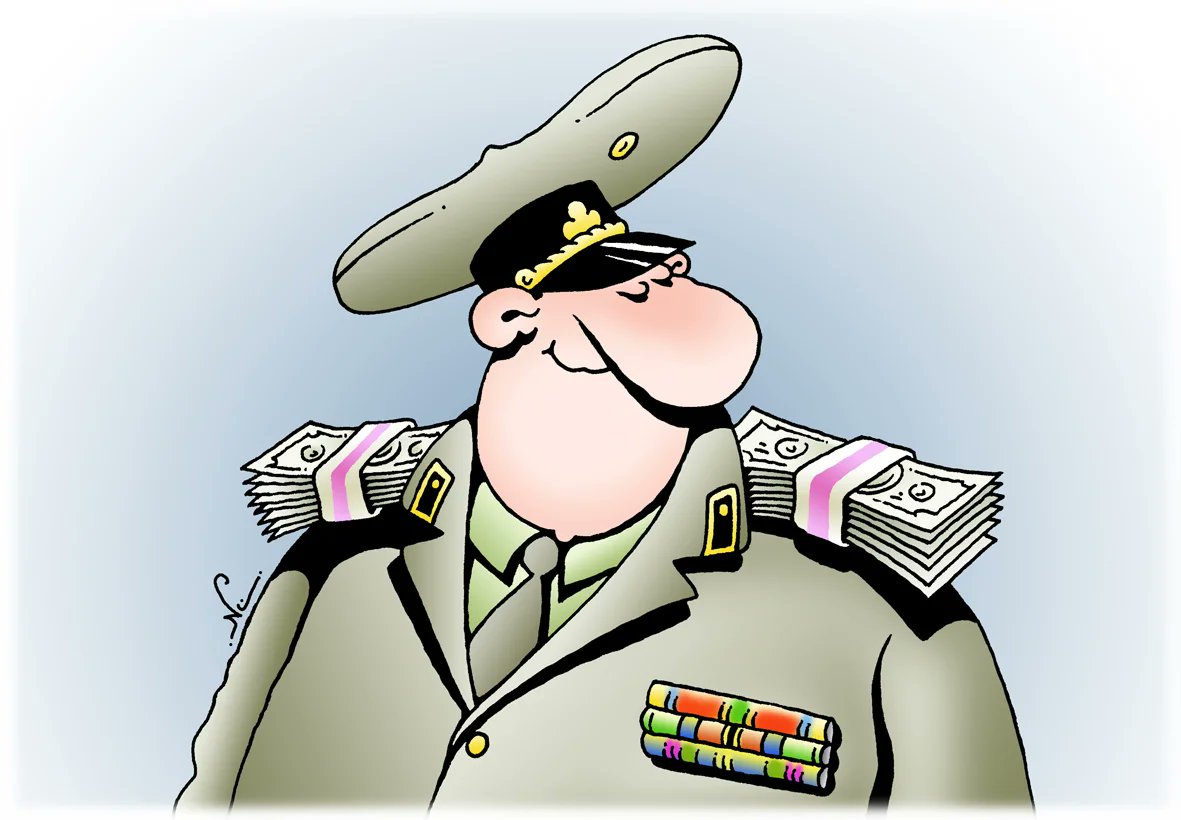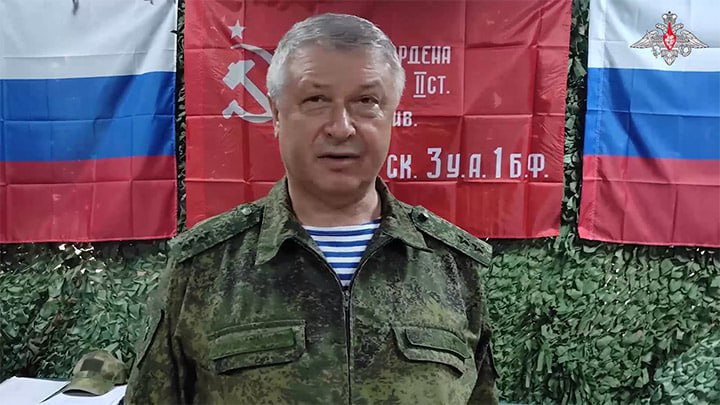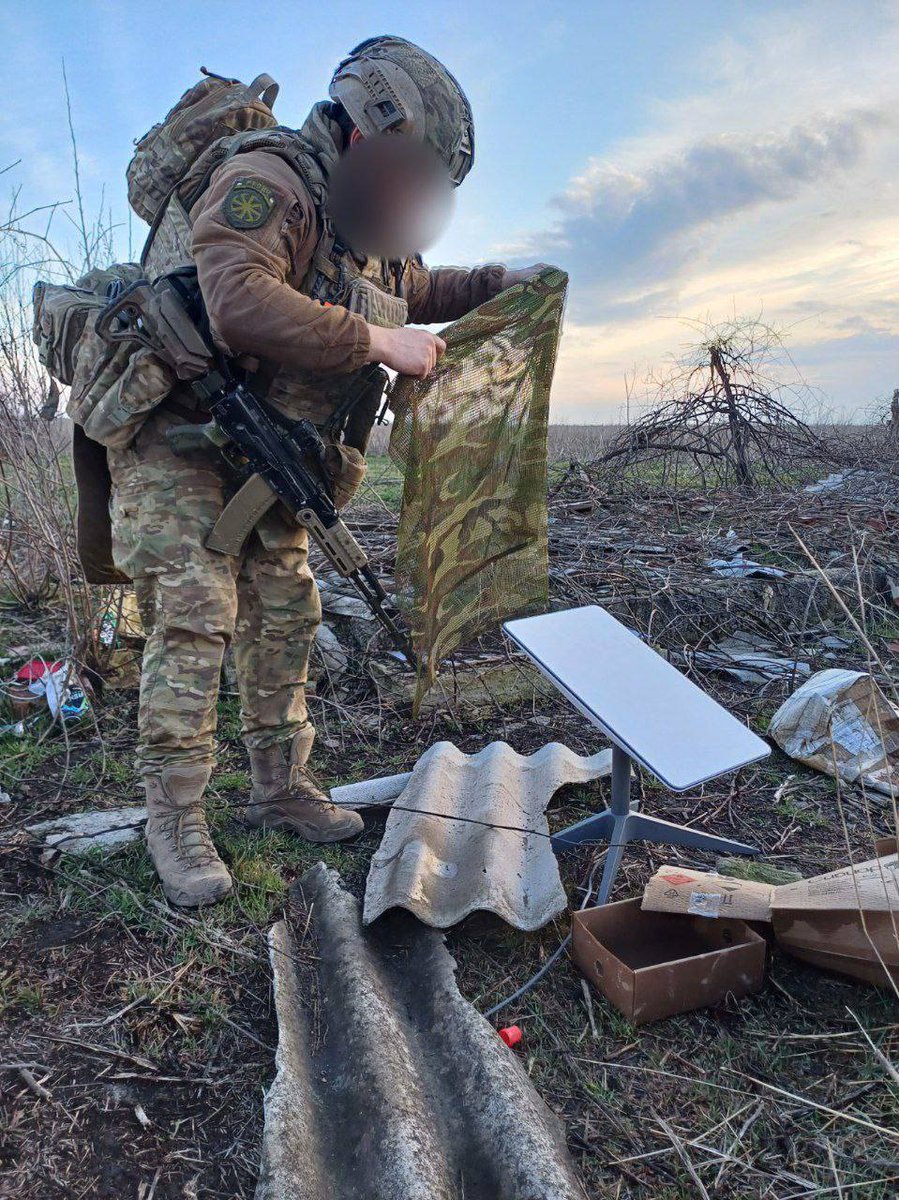1/ What do jewelry, cash, antiques, watches, mansions and Jennifer Lopez have in common? They've all been sought after by corrupt Russian military officials. In this second 🧵 in a series, I'll look at high-level corruption among Russia's military elite.
https://twitter.com/i/status/1531706608278982656/video/1
2/ For the first thread in this series, see below:
https://twitter.com/ChrisO_wiki/status/1531716422220632067?s=20&t=XzNeRw6AdfEGmT2eDFut3w
3/ Corruption and incompetence have been hallmarks of Russian generalship for centuries. At the 1854 Battle of the Alma, Lt Gen Vasily Kiryakov got drunk on champagne and ordered his regiment to fire on what he thought was the French cavalry. It was actually his own Kiev Hussars. 

4/ The defeated Russian commander, Prince Alexander Menshikov, fled from the victorious Allies. The French later discovered in his carriage "letters from the Tsar, 50,000 francs, pornographic French novels, the general’s boots and some ladies’ underwear." 

5/ Corruption at all levels persisted through the Soviet period, before exploding into open view after the fall of the Soviet Union. The Yeltsin era was dominated by so-called "wild" or "gangster" capitalism, in which anything and everything was for sale - at the right price.
6/ The 1990s were the high-water mark for so-called 'general thieves' in Russia, when the military budget was plundered to an unbelievable extent - losses were estimated at over $2 billion. Over 100 generals and admirals were prosecuted.
7/ The prize almost certainly has to go to General Georgy Oleinik, who was jailed in 2002 for illegally transferring $450 million to Ukraine as payment for materials that were never delivered. Most of the money was moved before the contract had even been signed. 

8/ This kind of scam has been common at high levels in Russia. Another spectacular case was that of Nikolai Ryabykh, head of the Defence Ministry's facilities department, who was convicted in 2016 with businessman Alexander Elkin for a 118 million ruble contract fraud. 

9/ Elkin, Ryabykh and others had billed the ministry for work that was never done. The money was simply stolen. Where did it go? In Elkin's case, he was arrested the day before his 50th birthday, for which he had organised a huge birthday party likely costing millions of rubles.
10/ The party included hiring a palace, antique tablecloths and curtains, gilded candelabra on the tables, fireworks and meeting guests with artists dressed as in the form of royal lackeys. Jennifer Lopez was reportedly hired to give a private performance. 

11/ Defence Minister Anatoly Serdyukov was among Elkin's guests. A few months later, Russian police raided the 13-room luxury Moscow apartment of Yevgeniya Vasileyva, a glamorous 33-year-old blonde. They were surprised to discover Serdyukov was also there, dressed in a bathrobe. 

12/ Vasileyva's apartment contained over $3 million in jewelry, cash, antiques and 19th-century artwork which had been "borrowed" from the museum of the Russian Defence Ministry. She was duly put under house arrest while investigations continued.
13/ Even for Russia, this was too big a scandal to overlook. The trail led back to Serdyukov, who served both as the Defence Minister and also chair of Oboronservis, a giant facilities company. Vasileyva was a director of the company, despite her lack of obvious qualifications. 

14/ Serdyukov already had a towering reputation for corruption: "he's stolen everything that isn't nailed down", as one subordinate said afterwards. He had appointed a series of attractive young women, dubbed "the Amazons" or "the ladies' battalion", to senior positions. 

15/ One such was an aspiring poet named Marina Chubkina, a 31-year-old former TV presenter and aspiring poet. She was given a rank equivalent to major general and was placed in charge of the maintenance of Russian chemical and nuclear facilities. 

16/ Serdyukov was fired by Vladimir Putin a few weeks later. He was accused of a variety of scams, but was charged only with "negligence" for ordering the army to build a road from a village to a private country residence. He was amnestied by Putin in 2014.
17/ In all, the corruption scandals surrounding Serdyukov were reported to have cost the Russian government at least 3 billion rubles ($60 million) - and that was likely the tip of the iceberg. It's unlikely that much if any of the money was recovered. 

18/ Putin replaced Serdyukov with Sergei Shoigu, previously Russia's minister for emergencies, in 2012. Shoigu - who is one of the architects of the present war in Ukraine - was brought in as a supposedly clean pair of hands. 

19/ However, only three years later the Russian opposition activist Alexei Navalny's organisation exposed Shoigu as the likely owner of an $18 million luxury mansion outside Moscow. It's registered in the name of his 18-year-old daughter. Shoigu's annual salary is $120,000. 

20/ And so it goes. Far from improving under Shoigu's "clean hands", Russia's problem of military corruption has got even worse since Serdyukov's sacking a decade ago, according to the Russian government itself.
21/ In the next thread in this series, I'll look at the social and organisational factors behind the endemic corruption in Russia's armed forces, and highlight the consequences for its military effectiveness. /end
@OSINTEng @Militarylandnet @RALee85 @War_Mapper @Blue_Sauron @Osinttechnical @oryxspioenkop @TrentTelenko @MarkHertling @DomNicholls @Nrg8000 @UAWeapons @TrueFactsStated @WarintheFuture @KofmanMichael @michaeldweiss @aravosis @JoshManning23 @general_ben @tomiahonen
Part 3 here:
https://twitter.com/ChrisO_wiki/status/1539019204267057153?t=-Oa4NNvP4erQz2mE03dlyA&s=19
• • •
Missing some Tweet in this thread? You can try to
force a refresh










